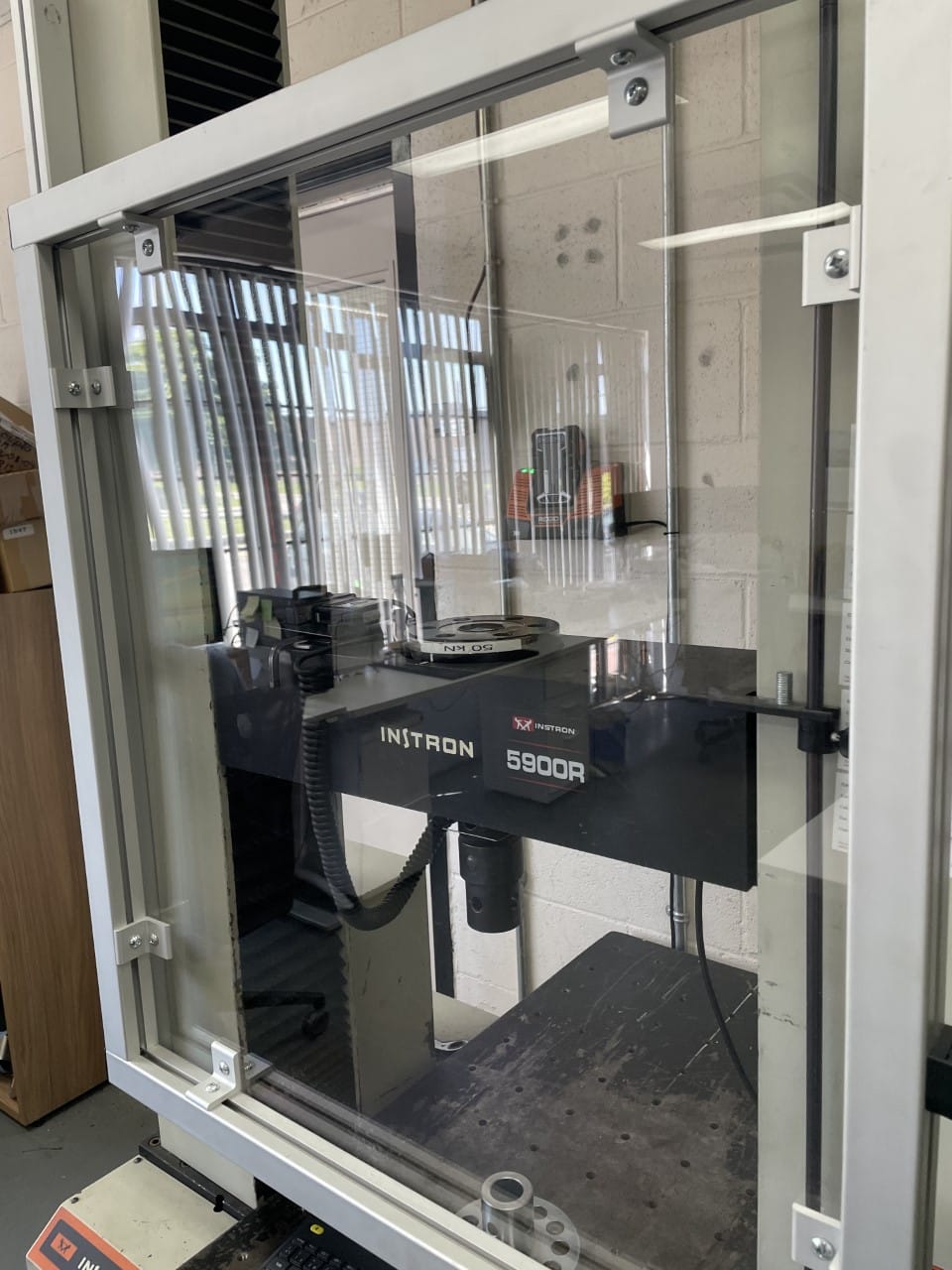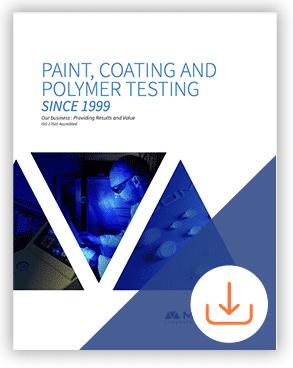ASTM D695
Standard Test Method for Compressive Properties of Rigid Plastics and Composites
At Micom Laboratories, we understand that the integrity and performance of rigid plastics are critical to the success of your products. That’s why we offer testing to ASTM D695, an essential standard test method designed to evaluate the compression properties of rigid plastics and composites. This test plays an important role in a variety of industries, from automotive to aerospace, ensuring that materials can withstand the pressures and challenges of real-world use. As part of our polymer testing and material testing services, ASTM D695 testing provides invaluable information on the durability and reliability of your material.
What is ASTM D695?
ASTM D695 is a standard test method developed by ASTM International. It is used to measure the compressive mechanical properties of rigid plastics, including high-modulus composites. This test is important for understanding how a material will behave under compressive loads, which is crucial in many applications across various industries.
ASTM D695 is often used with the tensile test standard ASTM D638. Together, ASTM D695 and ASTM D638 are used to evaluate the mechanical properties of polymers.
What Does ASTM D695 Measure?
ASTM D695 helps measure and understand the following properties of plastics:
- Modulus of elasticity (Young’s modulus): The ratio of stress to strain in a material in the elastic deformation phase.
- Yield stress (tensile strength): The stress at which a material begins to deform plastically.
- Deformation beyond the yield point: Measures how the material behaves after it has yielded.
- Compressive strength: The maximum compressive stress a material can withstand without failure.
These properties are key indicators in plastic testing, helping many manufacturers validate the performance of their materials.

Benefits Of Testing Your Products to ASTM D695
Testing products to the ASTM D695 standard offers several benefits:
- Quality assurance: Ensures that materials meet high standards of compressive strength and reliability.
- Improved product design: Helps optimize material selection and product design to avoid failures.
- Industry compliance: Ensures that products meet specific industry requirements, particularly in the automotive, aerospace, and construction sectors.
- Enhanced safety: Evaluates the safety of materials under compressive loads to prevent failure.
- Cost efficiency: Reduces costs associated with product recalls, warranty claims, and redesigns by identifying potential material failures or performance issues early in the design process.
- Research and development: Represents an invaluable tool for researching and improving new materials and products.
- Customer confidence: Enhances customer confidence through compliance with an internationally recognized standard.
Related Test Methods
The ASTM D695 Standard Test Method for Compressive Properties of Rigid Plastics is closely related to ASTM D638 and ASTM D790, all of which are integral in assessing various properties of polymers and plastics. We invite you to explore the full range of polymer testing and plastics testing services available at Micom Laboratories and to contact us for more information. It will be our pleasure to talk to you about material testing and review your custom testing requirements.


